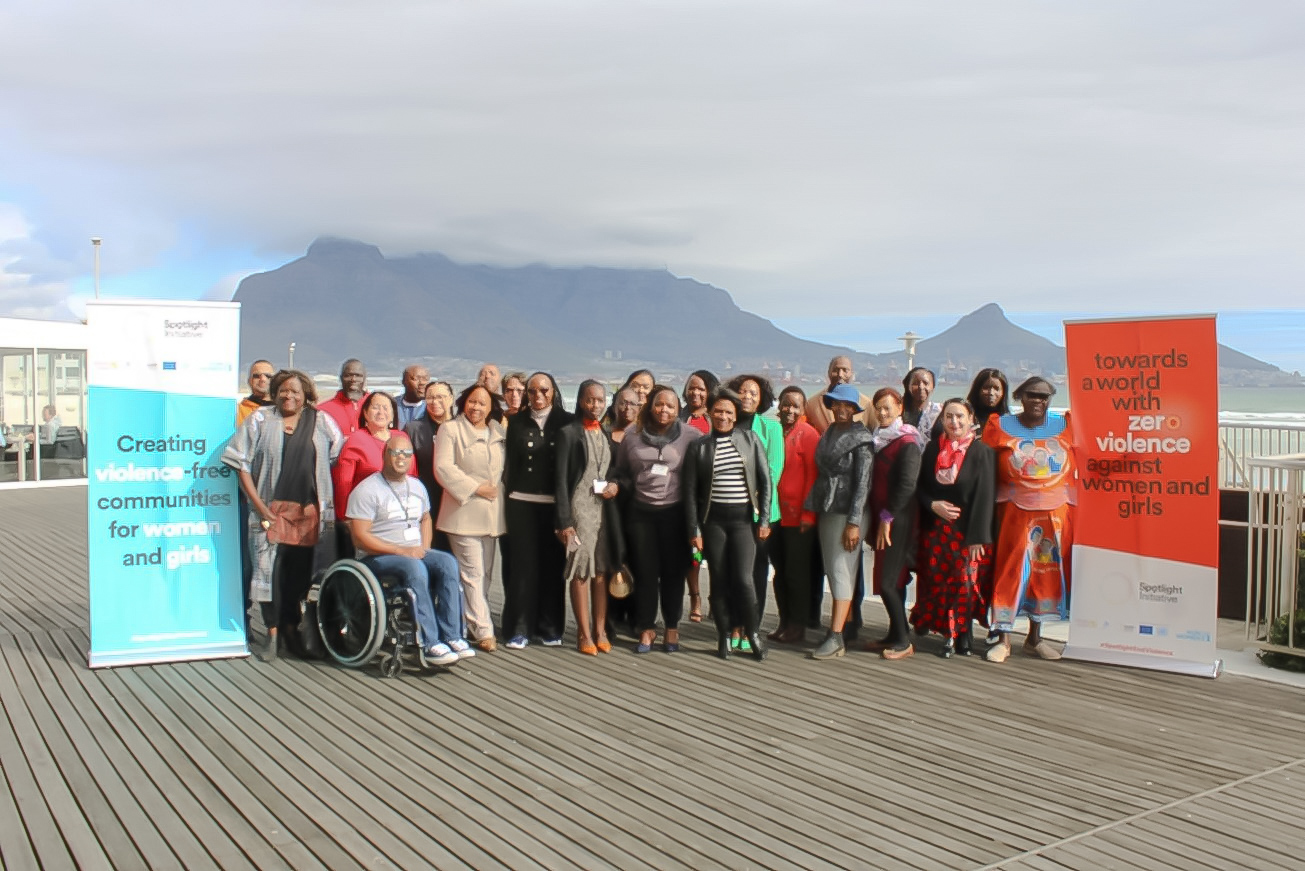Spotlight Initiative Africa Regional Programme: Civil Society in East and Southern Africa Pledged to Jointly Advocate Against Gender-Based Violence
Date:
[Press-Release]

Women's rights groups and civil society organisations recently gathered in Cape Town, South Africa, for the 2022 Eastern and Southern Africa regional forum on Eliminating Violence Against Women and Girls in Africa under the umbrella of the Spotlight Initiative Africa Regional Programme.
The Spotlight Initiative is a global partnership between the African Union, European Union and the United Nations to eliminate all forms of violence against women and girls by 2030. It is the world’s largest targeted effort to end all forms of violence against women and girls. As part of its Africa regional programme, it has partnered with Partners in Sexual Health (PSH), a regional youth-serving non-profit organisation, as an implementing partner to convene the forum.
The meeting could not have come at a better time, especially for the host country - South Africa, which has been reeling in shock following the gang rape of eight women in Krugersdorp in the Gauteng province.
At the heart of the Spotlight Initiative are women’s rights groups and civil society organisations, given their central role in the fight to end violence against women and girls globally, including in Africa. Africa regional and women’s networks have been critical in advancing continental and regional advocacy initiatives concerning regulations and laws and their implementation and ensuring implementation of interventions on the ground.
During the forum, one of the keynote speakers, Ms. Victoria Maloka, the Head of Coordination and Outreach Division of the Women, Gender and Youth Directorate at the African Union (AU), noted that “the elimination of GBV cannot be achieved without strong & empowered CSOs. We seek to strengthen the knowledge & capacities of CSO to transform social practice, drive policy change & hold duty bearers accountable”.
The CSOs gathered to pledge support and to deliberate on how best to jointly advocate for realistic policies and better implementation of policies to fight gender-based violence. Some concerns raised during discussions include the lack of data and statistics on sexual reproductive health and rights and gender-based violence services to inform policy formulation; the need for sexual reproductive health and rights education in schools to be improved, and the need to keep girls in schools to delay the early onset of sex; the crossing of borders to conduct female genital mutilation (FGM/C) to avoid legal ramifications in the home country and the emerging issue of medical FGM happening in clinics; the growing privatisation of the health sector; the lack of data on violence against children, to name a few.
"We believe in preventing gender-based violence and must ensure that young people are not left behind. We have to make a difference and this gathering is a step amongst many to put a spotlight on ending violence”— Ms. Patsy de Lora, CEO of PSH, in her welcoming remarks. In the last few months, some shocking news reports included, “Egyptian woman slain at university after rejecting marriage proposal’; ‘8 Women Models Gang-raped During Music Video Shoot Near Johannesburg’, ‘Harare man shoots girlfriend dead’, ‘Ahead of Kenya elections, female politicians face abuse, attacks’. These have become daily occurrences across the Africa region.
The keynote address delivered by Ms Molline Marume, Programme Specialist: EVAW and Women Peace and Security, UN Women – South Africa multi-country office, highlighted some shocking statistics in the SADC region. Child marriage is still a big issue. Almost one-fifth (19.4%) of Basotho girls marry before the age of 18; A woman is murdered every 4 hours in South Africa - more than half (57.1%) by an intimate partner; South Africa’s femicide rate is five times more than the global rate; In eSwatini, one in three Swazi girls will experience some form of sexual violence by the time they are 18 years old, while almost half of Swazi women will experience some form of sexual violence over their lifetime.
During the two-day forum, participants agreed on four priority key recommendations to be advocated for in strategic decision-making spaces. These include:
1. Regional Economic Communities (RECs) and the African Union (AU) to strengthen resourcing, accountability, tracking and reporting on human rights and gender rights commitments – including but not limited to the Maputo Protocol (2003), AU gender strategy, sub-regional SRHR and SGBV commitments (inclusive of Harmful Practices, Female Genital Mutilation/Cutting and Child Marriage).
2. AU and the RECS to facilitate standardisation of the rape sentencing across Southern African Development Community (SADC) and East African Community (EAC) member states with provisions for minimum mandatory penalties.
3. AU and the RECS member states to review and align national laws and policies to domesticate and implement regional and international instruments for ending child marriage – including establishing comprehensive social protection systems. (To mitigate economic insecurity).
4. AU, the RECS secretariats, and the UN facilitate meaningful participation of CSOs, women movements and youth organisations in their decision-making processes.
Going forward, the forum participants agreed to start a WhatsApp group as one of the coordinated advocacy collaborations to share knowledge, network, partner, and jointly advocate for eliminating violence against women and children; and to ultimately effectively influence the African Union and global policy agenda
on the elimination of violence against women and girls in Africa.
For more information on the global Spotlight Initiative, please visit: www.spotlightinitiative.org
Media contacts:
Priscilla Mawuena Adjeidu: AdjeiduP@africa-union.org
Hamlet Johannes: Hamlet@psh.org.za
Aijamal Duishebaeva: aijamal.duishebaeva@unwomen.org